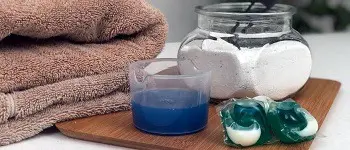
Explanations about Detergent
Detergent is substances that remove off particles of grease and dirt from other fabrics, objects, cloths, body and use in industry .
Thayer are made up of different types. Any substance that is used to clean the laundry is called detergent. There are different types of it used depending upon the type of laundry.
The kind of different detergents
1) Powder
2) Conventional
3) Liquid
Usage of product
The first substance made as it was soap. On the other hand, metal soaps, alkaline earth carboxylates or heavy metals are long-chain.
These soaps are insoluble in water and in inorganic systems, for example, additives to lubricating oils, rust inhibitors, waterproofing materials and gelatinous fuels, fungicides are used.
Bleaches and remove colors although all the metal salts of fatty acids are soap, only alkaline salts such as sodium and potassium are soluble in water and have a cleansing effect.
Synthetic detergents
Liquid soap
Shampoo
Washing powder
Bleaches and remove Colors
The groups of chemical are used in product:
Linear Alkyl Benzene Sulphonic Acid/ LABSA
Sulfonic Acid
Sodium Lauryl Sulfate /SLS
SLES/texapon/Solium Lauryl ether Sulfate
Ammonium Lauryl Sulfate /ALS
Triethanolamine Lauryl Sulfate / TLS
Diethanolamin /DEA
Triethanolamin / TEA
Betaine
NaOCl/ Sodium hypochlorite
NaOH/Sodium hydroxide
Sodium carbonate/soda ash
The groups of surface-active agents :
Anionic detergent: that is including soap and the largest synthetic detergents
Cationic detergent: that produces electrically positive ions in solution.
Nonionic detergent, it produces electrically neutral colloidal particles in solution.
Molecules in detergent
The (surface-active agents) has chemical structures: their molecules contain a hydrophobic (water-insoluble) part, same as a fatty acid or a rather long chain carbon group such as fatty alcohols or alkyl benzene.
The molecule contains a hydrophilic (water-soluble) group, such as -COONa, or a sulfa group, such as -OSO3Na or -SO3Na.The hydrophobic part of the molecule attaches to the solid or fiber and the soil, and the hydrophilic part attaches to the water.